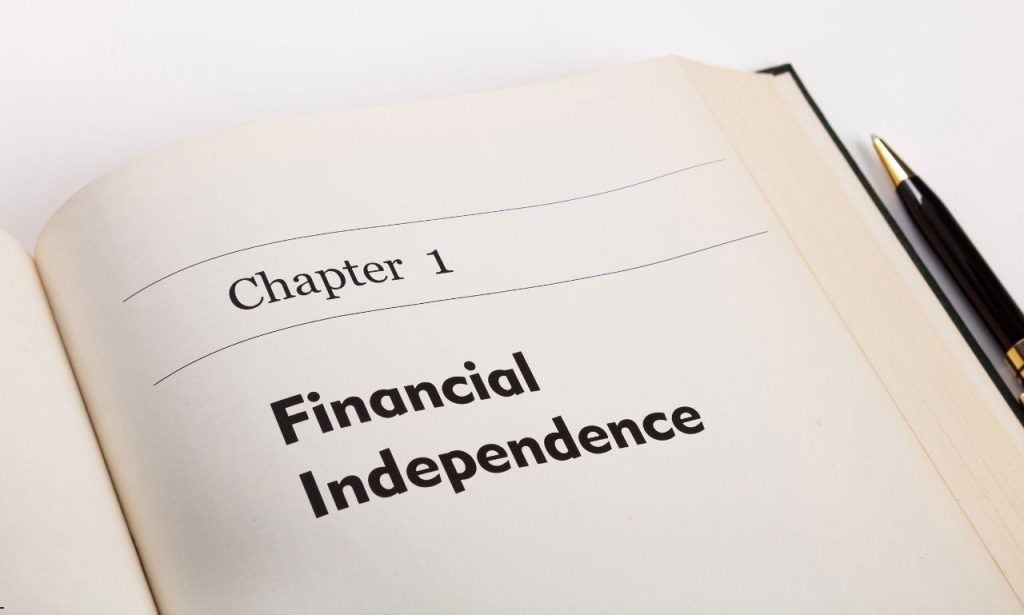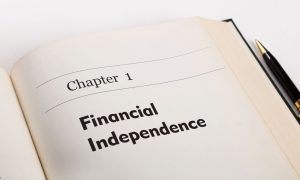Everyone dreams of financial freedom. The ability to live life without money worries feels like the ultimate goal. Yet, for most people, it remains distant—almost untouchable. Why? Because financial independence doesn’t just happen; it’s built deliberately.
Earning a good income alone doesn’t guarantee freedom. What truly matters is how you manage, plan, and think about your money. Many people unknowingly sabotage their financial progress with habits that keep them in a never-ending cycle of dependency.
So, let’s break down the 5 things keeping you from a life of financial independence, and how to fix them.
Not Having Clear, Financial Goals

Money without direction easily disappears. Without clear goals, your finances lack purpose. You might earn plenty, yet wonder where it all went.
Think about it—when you don’t set a target, any spending feels justified. You tell yourself, “I deserve this,” or “I’ll save next month.” The result? Missed opportunities, delayed savings, and constant stress about the future.
Creating financial goals brings structure. Define what you want: a home, early retirement, or freedom from debt. Then break it into smaller milestones—monthly savings targets, investment contributions, or budget limits.
Setting clear goals gives your money a job. It keeps you accountable. When you track progress, you feel motivated to stay consistent. Over time, these disciplined actions turn into powerful financial habits.
A good rule of thumb? If your goals aren’t written down, they don’t exist. Clarity transforms wishful thinking into measurable progress.
Not Saving Enough
Saving isn’t glamorous, but it’s the foundation of independence. Many people assume they’ll start “when they earn more.” Sadly, that moment rarely comes.
The problem lies not in income but in mindset. Saving is less about how much you make and more about what you prioritize. Waiting for “extra money” is a trap. Expenses always rise to match income unless you decide otherwise.
Automate your savings. Treat them like bills—non-negotiable. When savings leave your account before you spend, it becomes effortless. Small amounts add up, especially with compound growth.
Imagine skipping one coffee a day and saving that instead. In a year, that small decision could mean hundreds in your account. Multiply that over decades, and you’ve built a solid safety net.
Consistency outweighs perfection. You don’t need to save half your salary; you just need to save regularly. The earlier you start, the lighter the load later. Remember, time is the silent partner in wealth creation.
Not Paying Off Consumer Debt
Debt feels normal in today’s world—credit cards, car loans, buy-now-pay-later schemes. Yet, these conveniences often become shackles.
Consumer debt steals future income. Every dollar you owe is a dollar already spent. Interest makes it worse, quietly eating away at your paycheck. It’s like carrying a leaky bucket—no matter how much water you pour in, it never fills.
Financial independence demands control over debt. Begin by identifying high-interest balances. Credit cards usually top that list. Pay more than the minimum; otherwise, you’re just feeding the interest machine.
Create a repayment plan. Some people prefer tackling the smallest debts first (the snowball method), while others focus on the highest rates (the avalanche method). What matters most is momentum.
Once debts shrink, redirect those payments into savings or investments. It’s a psychological win too. Each balance cleared feels like a weight lifted off your shoulders.
Avoid viewing credit as “free money.” It’s borrowed freedom—and eventually, the bill always arrives.
Giving Into Lifestyle Creep
Lifestyle creep is subtle. You get a raise, buy better clothes, move to a pricier apartment, and upgrade your gadgets. It feels deserved—but quietly, your spending inflates.
This trap keeps many professionals stuck in the same financial position year after year. They earn more yet save the same—or less. Lifestyle creep doesn’t just eat money; it steals your long-term security.
You can enjoy success without sabotaging progress. Before increasing your spending, ask, “Does this purchase move me closer to my goals?” Sometimes, maintaining your current lifestyle for another year can accelerate wealth dramatically.
There’s nothing wrong with rewarding yourself. The issue is when rewards become routine. Each unnecessary expense slows your journey to freedom.
Think of your raises as opportunities, not excuses. Use them to build assets instead of liabilities. When your income rises, keep your lifestyle stable and let your investments grow.
A true mark of financial maturity isn’t how much you spend—it’s how much control you maintain.
Being Driven by FOMO
Fear of missing out—FOMO—can ruin even the best financial plans. In a world of constant updates and flashy success stories, it’s easy to feel behind.
You see friends investing in trendy stocks, buying new cars, or posting luxury vacations. Suddenly, your steady savings plan feels boring. That’s when impulsive spending or risky investments sneak in.
FOMO thrives on comparison. It blinds you to your own progress and shifts focus to what others appear to have. The truth? Most people online show highlights, not reality.
Chasing trends often leads to losses. Cryptocurrency booms, “hot” stocks, or quick-profit schemes rarely end well. Financial independence requires patience, not adrenaline.
Instead, stick to your plan. Boring investments like index funds or real estate may lack excitement but offer lasting rewards. Your journey is yours alone. No one posts their financial stress, only their wins.
If you ever feel pressure to “keep up,” pause and ask, “Will this matter five years from now?” Usually, it won’t.
Learning to ignore the noise is a quiet form of strength. Focus on building wealth slowly, not showing it instantly.
A Brief Human Reflection
Let’s pause here for a human moment. Most people have stumbled in at least one of these areas. I once struggled with lifestyle creep myself—each raise felt like permission to upgrade everything. It took years to realize that saving wasn’t sacrifice; it was strategy.
Financial independence doesn’t demand perfection. It requires awareness and consistent effort. Mistakes are part of the process, but repeating them is optional.
So, take a deep breath. You’re not behind—you’re learning.
Conclusion
Financial independence isn’t about luck or high income. It’s the result of consistent, conscious choices. Avoiding these five pitfalls—unclear goals, low savings, unmanaged debt, lifestyle inflation, and FOMO—can transform your financial future.
Start small. Review your budget, set goals, and celebrate every bit of progress. Over time, these decisions compound into freedom—the kind that lets you choose your life, not just afford it.
Money, after all, should be a tool for living, not a chain that limits it.
So, ask yourself: what’s the one change you can make today to move closer to independence? Because the sooner you start, the faster you’ll get there.
Also Read: Why High-Income Doesn’t Equal Financial Freedom
FAQs
It means having enough income from savings or investments to cover your living expenses without active employment.
Begin small. Automate savings, even $10 a week. Over time, increase the amount as income grows.
Ignoring interest rates. Many focus on small payments while interest quietly multiplies their balance.
Set clear spending boundaries. Increase savings before increasing expenses when your income rises.





